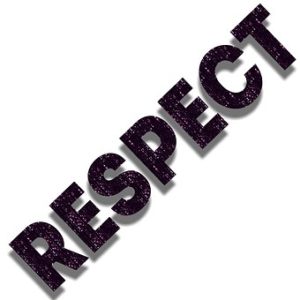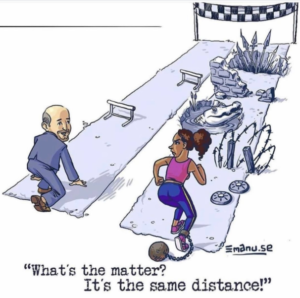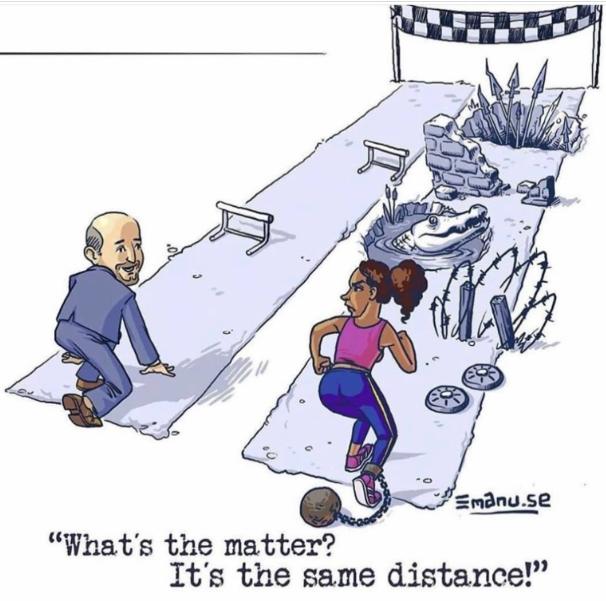Having discussions about what we see in the news is so important and provides us with opportunities to address pertinent issues our children face and must be prepared for.
One such incident arose this week and offers the opportunity to examine aspects of misogyny and our use of language. Please note the reporting and links contain the vulgar language at the centre of this storm.
This week in the US, Florida Rep. Ted Yoho was reported to have called opponent Rep. Alexandra Ocasio-Cortez an offensive name. In denying using the vulgar term to describe her, Yoho said that he was “very cognizant” of his language because he was married and a father. He went on to say he refused to apologise for his “passion, loving my God, my family, and my country”.
Yoho’s speech is available here. Ocasio-Cortez responded with a rousing speech and excoriated Yoho on the House floor.
I do not need Representative Yoho to apologize to me. Clearly he does not want to. Clearly when given the opportunity he will not and I will not stay up late at night waiting for an apology from a man who has no remorse over calling women and using abusive language towards women, but what I do have issue with is using women, our wives and daughters, as shields and excuses for poor behavior.
And so what I believe is that having a daughter does not make a man decent. Having a wife does not make a decent man. Treating people with dignity and respect makes a decent man, and when a decent man messes up as we all are bound to do, he tries his best and does apologize. Not to save face, not to win a vote, he apologizes genuinely to repair and acknowledge the harm done so that we can all move on.
Watch her speech in full below. (Text of speech).
Of further interest since is the commentary to be found on social media about this incident and the reporting of it. This comment from Mark Harris about the coverage in the New York Times is interesting as he calls out the writers for what he sees as suggesting Alexandria Ocasio-Cortez is “amplifying her own brand”.
As mentioned, the entire affair offers lots of scope for discussing language usage with our children. As Alexandria Ocasio-Cortez highlights in her speech,
In using that language in front of the press, he gave permission to use that language against his wife, his daughters, women in his community, and I am here to stand up to say that is not acceptable.
Yoho asserts his comments were directed towards policy rather that towards Ocasio-Cortez personally. Whatever the truth may be, it is clear such language is increasingly common in our society. In hearing language such as this, it is not just the impact on girls we must be concerned about. What do boys learn when the hear women spoken to in this way? Speech that objectifies women and girls or that normalises violence (in any form) against them, is damaging to both sexes, rendering girls victims by affecting their self-worth and sense of self and creating a warped sense of masculinity for boys that hinders their emotional development and well-being.
With this in mind, what can we do to address issues of misogyny with our children? Here are a few questions I believe it is worth reflecting on.
What messages are being received by your child?
Much of what we see on social media, in magazines and on television sends concerning messages about appearance and roles.
-
Are your children exposed to content that objectifies rather than empowers women?
-
Are they subjected to messages that confine them to certain roles/ stereotypes?
-
Are your children told certain things are for boys or girls? Have you discussed gendered toys and clothing with your child?
-
Do you focus on flaws in your own appearance or that of others and speak aloud about this is front of your child?
-
Is there any evidence your child has internalised messages about how they should look? Has (s)he expressed any desire to change aspects of his/her appearance?
-
Have you discussed questionable song lyrics etc. with your child?
-
Have you considered and talked to your child about the negative way feminism is portrayed?
-
Gender stereotypes are formed early. What are you doing to address them?
What kind of messages should your child be receiving?
Consider the messages you want your children to hear. It is imperative we enable our children to become critical consumers of media.
-
Are you modelling those messages for them, both in your words and in your actions?
-
If you see your children exposed to inappropriate language or messages, do you discuss with them why these are unacceptable?
-
What messages do the books, toys and music your child owns / has access to send?
-
Does the school your child attends promote gender stereotypes through their curriculum or through the activities on offer?
-
Is your child aware of the gender pay gap and the ceilings often placed on women in the workplace? What types of low-paid work are women routinely expected to undertake?
-
Consider contrasting societal attitudes towards young men and women who are sexually active. What language is used to describe the men and women involved?
-
With pornography ever more readily accessible to our children, what unhealthy messages and unrealistic expectations are they internalising?
Does your child understand what types of language are degrading and problematic?
It is imperative you talk to your child about the type of language and behaviours that constitute misogyny (or other forms of abuse) and harassment. Sometimes children copy terms they have heard from others without fully understanding their meaning or realising why they are offensive.
-
If your child hears someone say another person, “runs like a girl” – what message are they receiving?
-
If a crying boy is told to “man up,” what is the implication?
Is your child equipped to deal with / confront those using inappropriate language towards others?
From an early age, it is important to teach children about the power of their actions. If they see something wrong occurring and simply stand by, they must understand the message this sends. Even if your child is not comfortable about calling out a perpetrator directly, it is important they are self-assured enough not to join in and laugh when something inappropriate is said. Ideally, it is to be hoped your child feels able to question or confront something that goes against their values. Role-play problematic scenarios with your child and equip them with the language they might use in such a situation.
-
Why did you say that?
-
Is that really your view?
-
Do you really believe that girls/boys should do XYZ?
-
Is that a joke?
Is your child equipped to deal with / confront anyone using inappropriate language towards him/her?
-
Does your child know who they can turn to if they experience teasing or taunting or any kind of actions that make them feel nervous or uncomfortable?
-
Is your relationship open enough that your child feels they can talk to you about anything without fear of judgement or recriminations (even if they have put themselves in a dangerous situation, e.g., being somewhere they are not supposed to be / doing something they were not supposed to do)?
It is important your child knows that you are there for him/her and that (s)he can approach you for help at any time.

Sometimes necessary conversations are uncomfortable. Sometimes it is difficult to fathom such conversations are necessary. However, think of the media bombardment your child faces on a daily basis. In order to raise children who are happy and healthy, we must empower them from the outset to set and maintain appropriate standards and boundaries for themselves in the way they treat themselves and allow themselves to be treated by others.
They should be able to critically examine the messages they are presented with, identifying misogyny, double standards, body shaming etc. and recognising privilege. I have seen written Ocasio-Cortez should not complain about this as it goes with the territory. We need to consider the extent to which this keeps women out of public office and why anyone should deem abuse acceptable in any walk of life.
Let’s equip our children to challenge abusive language and behaviour just as Ocasio-Cortez did this week and demand respectful treatment and equal opportunities for all.
Updated 25/7th to add the following image I stumbled across. I think it serves as another excellent way to begin a discussion on this topic. Can your child explain the picture?




